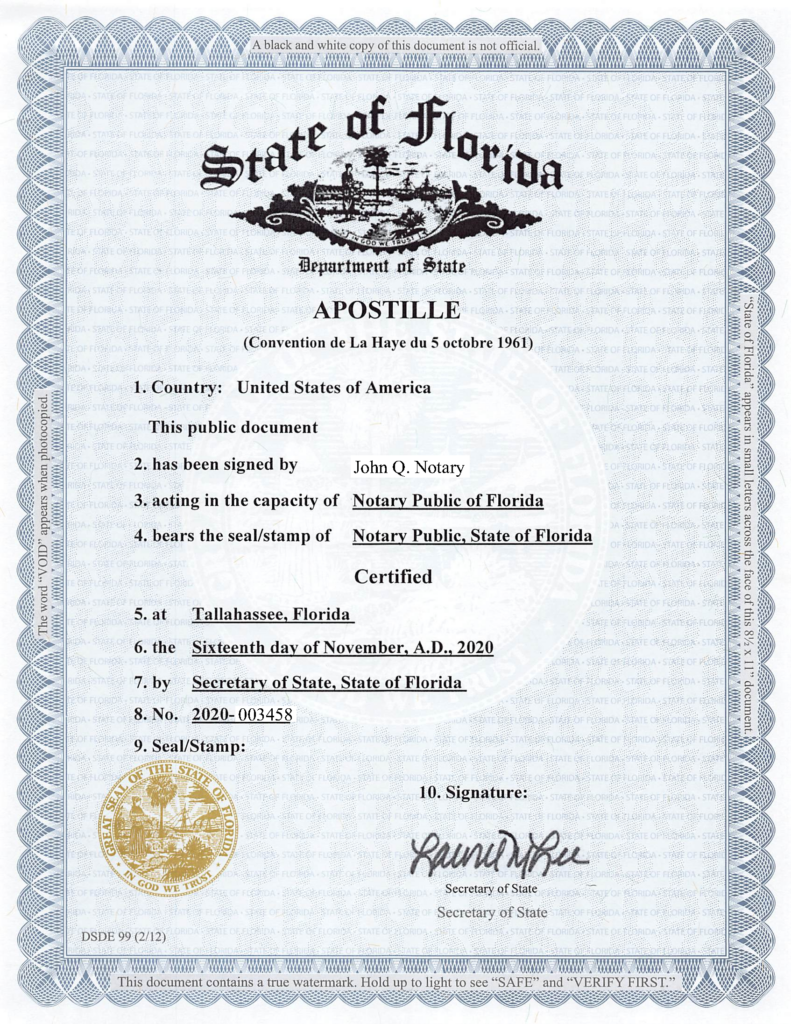Unveiling the Vital Function of Apostille in Simplifying International File Recognition Processes
In the realm of global events, the recognition of records holds extremely important significance. By affixing an apostille to a file, it goes through a streamlined validation that is recognized across various nations, therefore reducing the problems associated with cross-border paper authentication.
Comprehending Apostille Essentials
In the world of document recognition for global usage, grasping the basic principles of apostille verification is essential. An apostille is a customized certificate that validates the authenticity of a document for use in international nations that are part of the Hague Apostille Convention.
Apostilles are frequently issued for crucial records such as birth certifications, marriage certifications, and academic records. The essential elements of an apostille include the name of the country where it was issued, the name of the individual signing the file, the ability in which the individual signed the record, the seal or stamp of the providing authority, and the day of issuance. By understanding these basic facets of apostille authentication, people and organizations can navigate the intricacies of international paper recognition with self-confidence and efficiency.
Advantages of Apostille for Recognition

Furthermore, the apostille streamlines the verification procedure by giving a standardized certificate that verifies the credibility of the document, such as birth certifications, marital relationship licenses, notarized actions, and academic transcripts. This standard format lowers the danger of denial because of unfamiliarity with foreign files, therefore boosting the performance of cross-border deals.
Furthermore, the apostille aids in removing the demand for several layers of authentication by federal government authorities, as the apostille itself represents the document's validity. This not only increases the record recognition procedure yet likewise decreases the associated prices and administrative difficulties, making it a convenient and affordable solution for organizations and people involving in global activities.
Simplifying Cross-Border File Authentication
Promoting the validation of records across worldwide boundaries, the apostille process functions as a streamlined and universally acknowledged technique for verifying different kinds of official documentation. Streamlining cross-border paper authentication, the apostille removes the need for frequently challenging and extensive recognition procedures typically called for when providing files in international nations. By attaching an apostille to a file, the releasing nation accredits the credibility of the record, making it conveniently appropriate in various other nations that are part of the Hague Apostille Convention. This standardized procedure significantly reduces the moment and effort entailed in confirming the authenticity of official paperwork, advertising performance and simplicity of global purchases.
Moreover, look at this website the apostille system boosts the safety and security and trustworthiness of cross-border document recognition by offering a transparent and globally approved device for verifying the validity of documents. This simplification of authentication refines not only benefits individuals and services seeking to run globally but also fosters smoother communication and collaboration between countries by making certain the dependability of common paperwork.
Relevance of Apostille in Legalization

Apostille our website ensures that legal records such as birth certifications, marital relationship certifications, powers of lawyer, and court files are acknowledged and accepted in foreign territories. This is particularly essential in legal issues such as worldwide adoptions, migration procedures, or organization transactions that involve celebrations from various countries. The apostille procedure minimizes the bureaucratic difficulties and time-consuming treatments typically connected with file legalisation, making global transactions a lot more effective and legally binding. To conclude, the relevance of apostille in the legalisation of worldwide papers can not be overstated, as it assists in smooth cross-border interactions and ensures the credibility and authenticity of legal documents.
Apostille Vs. Standard Validation Methods
Comparing apostille with typical validation methods exposes distinct distinctions in the performance and simpleness of record authentication processes for worldwide usage. Apostille, as a standard and structured method developed by the Hague Convention, provides a much more uncomplicated strategy to validating files compared to standard techniques. Standard recognition processes commonly involve numerous actions, consisting of notarization, qualification by federal government authorities, and consular legalisation, which can be taxing and difficult.
Apostille, on the other hand, streamlines this process by licensing files with a single apostille certification released by a proficient authority in the nation where the document comes from (Houston TX Apostille). This certification is recognized by all participant nations of the Hague Convention, removing the demand for further embassy legalisation. Consequently, apostille dramatically reduces the moment and effort required for paper recognition, making it a recommended option for individuals and companies associated with global purchases
Verdict
Finally, apostille plays an important duty in simplifying international file recognition processes by providing a standard method of authentication that is recognized throughout getting involved nations. By enhancing the legalization procedure, apostille gets rid of the requirement for several layers of validation, reducing time and prices linked with cross-border record authentication. This effective system advantages individuals and organizations looking for to utilize foreign records for lawful objectives, making certain smoother worldwide transactions.
By affixing an apostille to a blog here paper, it goes through a simplified validation that is acknowledged throughout numerous countries, hence reducing the concerns associated with cross-border file verification. Streamlining cross-border document authentication, the apostille gets rid of the requirement for lengthy and usually complex recognition procedures normally required when providing documents in international countries. By fastening an apostille to a document, the providing country certifies the authenticity of the paper, making it readily appropriate in other nations that are part of the Hague Apostille Convention. By attaching an apostille to a record, the providing country accredits the authenticity of the trademark, seal, or stamp on the document, making it valid for usage in an additional member nation of the Hague Apostille Convention without the need for further legalization.
